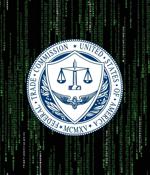Security News

A company's supply chain is like a body's nervous system: a mesh of interconnected manufacturers, vendors, sub-contractors, service delivery firms, even coding and collaboration tools. A recent study by NCC Group estimated that supply chain attacks increased by 51% in the last six months of 2021, and the BlackHat 2022 conference featured a number of talks highlighting the vulnerability of supply chains not just between companies connected by business operations, but also software coding practices.

The U.S. Federal Trade Commission has sued education technology company Chegg after exposing the sensitive information of tens of millions of customers and employees in four data breaches suffered since 2017. The agency's proposed order would require Chegg to shore up data security, implement multifactor authentication to help users secure their accounts, limit collected and stored customer data, and allow customers to access and delete their data.

After suffering two large, and embarrassing, data breaches in recent weeks, the Australian government increased the fine for serious data breaches from $2.2 million to a minimum of $50 million. The problem is one of incentives, and Australia has now increased the incentive for companies to secure the personal data or their users and customers.

The City of London Police on Friday revealed that it has arrested a 17-year-old teenager from Oxfordshire on suspicion of hacking."On the evening of Thursday 22 September 2022, the City of London Police arrested a 17-year-old in Oxfordshire on suspicion of hacking," the agency said, adding "He remains in police custody."
![S3 Ep101: Uber and LastPass breaches – is 2FA all it’s cracked up to be? [Audio + Text]](/static/build/img/news/s3-ep101-uber-and-lastpass-breaches-is-2fa-all-its-cracked-up-to-be-audio-text-small.jpg)
DUCK. Yes, Uber has come out with a follow up report, and it seems that they're suggesting that a hacking group like LAPSUS$ was responsible. Just because you have those that's a security gate, but it's not the end-all and be-all to keeping someone out.

An MFA Fatigue attack is when a threat actor runs a script that attempts to log in with stolen credentials over and over, causing what feels like an endless stream of MFA push requests to be sent to the account's owner's mobile device. A demonstration of an MFA Fatigue attack, or MFA spam, can be seen in this YouTube video created by cybersecurity support company Reformed IT. In many cases, the threat actors will push out repeated MFA notifications and then contact the target through email, messaging platforms, or over the phone, pretending to be IT support to convince the user to accept the MFA prompt.

The Lorenz ransomware gang now uses a critical vulnerability in Mitel MiVoice VOIP appliances to breach enterprises, using their phone systems for initial access to their corporate networks. While these incidents weren't linked to a specific ransomware gang, Arctic Wold Labs was able to attribute similar malicious activity to the Lorenz gang with high confidence.

In this Help Net Security video, Michael Thelander, Director Product Marketing at Eclypsium, discusses how financial organizations are failing to act despite the majority experiencing a firmware-related breach. 92% of CISOs in finance believe adversaries are better equipped at weaponizing firmware than their teams are at securing it, according to Eclypsium and Vanson Bourne.

This attack and many others reinforce the importance of an effective Privileged Access Management framework that enforces the principle of least privilege with Just-in-Time privilege elevation. Reasons why you need Just-in-Time privilege elevation Minimize attack surface.

Almost 2,000 data breaches reported for the first half of 2022. In a new report entitled State of Data Breach Intelligence: 2022 Midyear Edition, security firm Flashpoint looks at the number and types of data breaches reported for the first half of 2022.